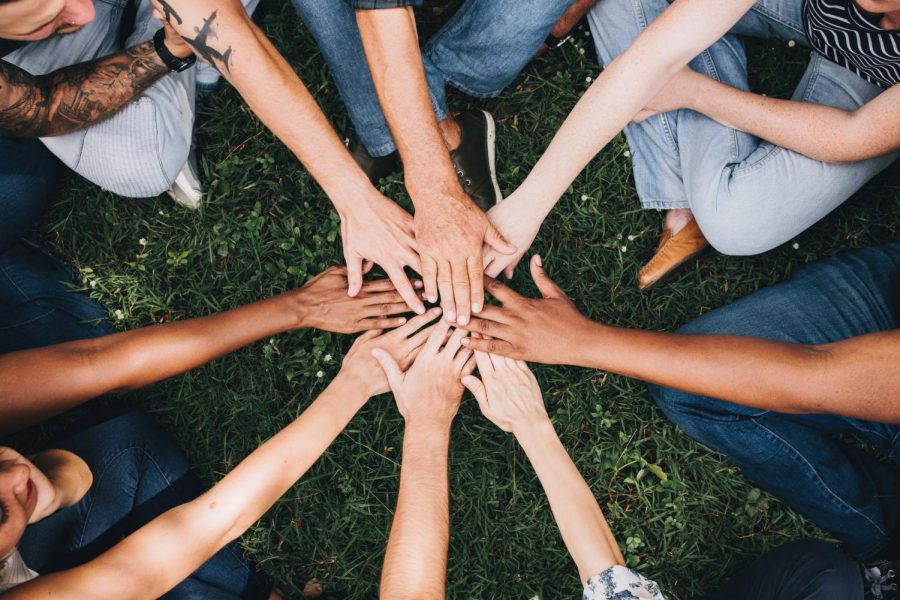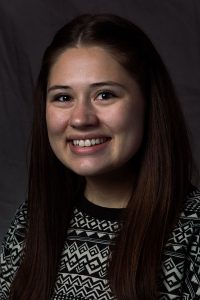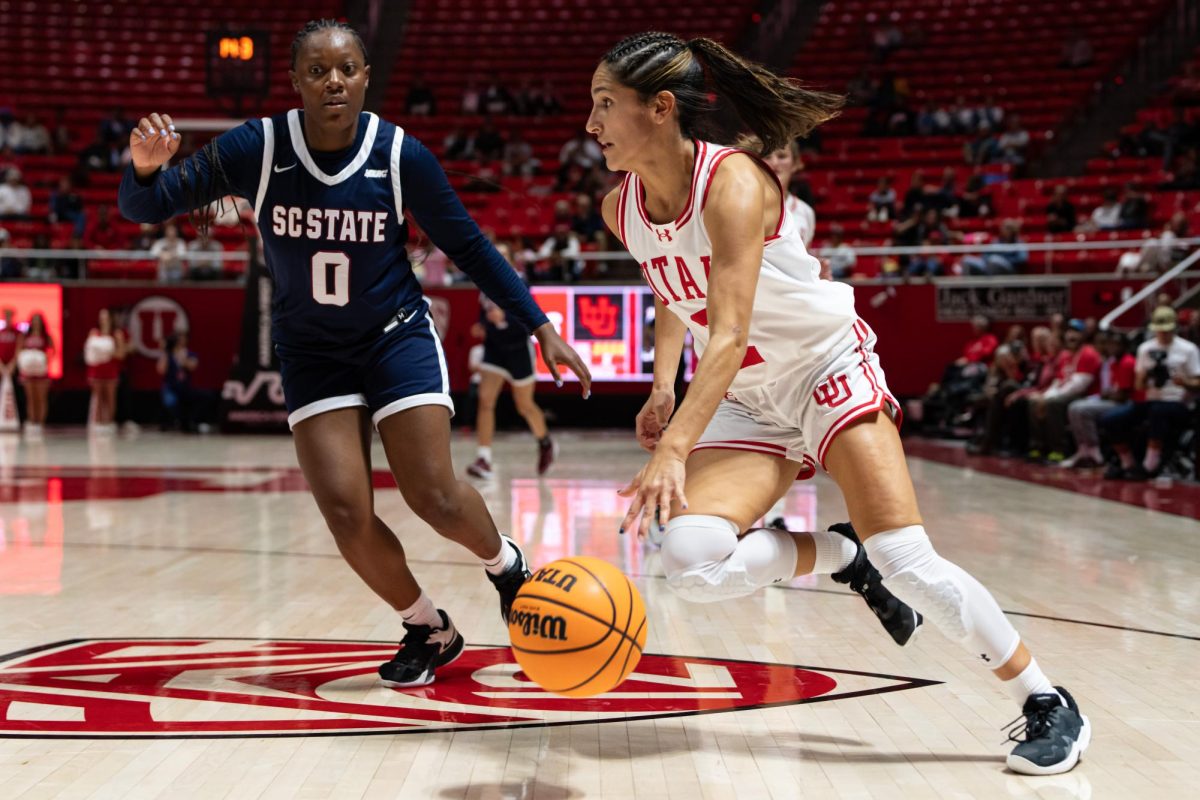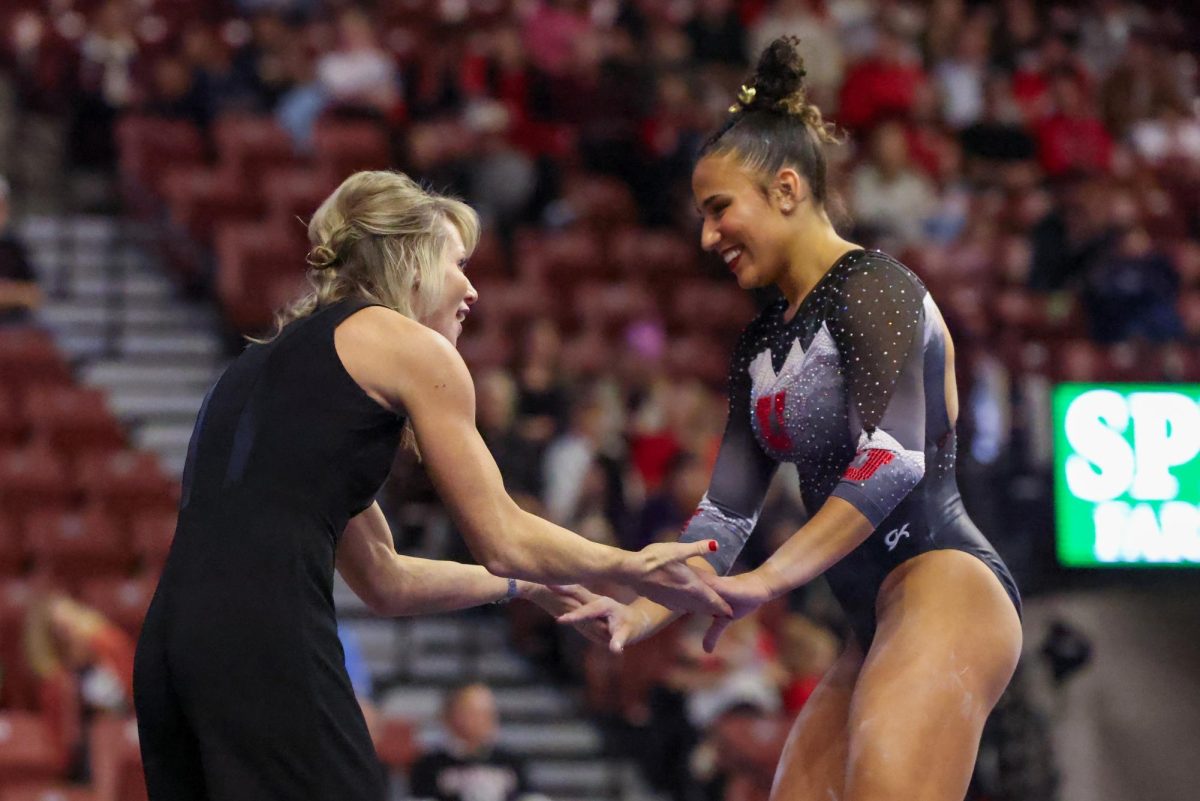Chavez: Curiosity About Identity
September 18, 2019
Growing up, I felt othered.
On my dad’s side, my grandfather was from Chihuahua, Mexico, and my grandmother was white, with Latter-day Saint pioneer roots. My mom’s side of the family has English, Danish and pioneer ancestry — so again, white.
My dad and his siblings did not learn Spanish as children, so I also grew up only speaking English. Having the last name Chavez, however, led many people to make assumptions about us. Our family had a mixed relationship with The Church of Jesus Christ of Latter-day Saints as well, which was a heavy part of the small-town, Idahoan culture where I grew up. I never felt like I had a true grasp on any kind of identity.
I was able to navigate adolescence with enough solid friendships that the majority of my stress about other people’s perceptions of my identity subsided for awhile. Things changed when I was 19 and moved to Salt Lake City.
I started working a job that required I wear a name tag. My first name is not difficult to pronounce, but it stops a lot of people mid-sentence when they see it for the first time. It did not take long for customers to start inquiring about its pronunciation and origin, or just want to tell me how confused they were.
Depending on how much energy I have for small talk, I give them the long or short version of a constantly used response. I am used to the questions at this point. I have accepted that the only way to reduce the amount of name-related curiosity is to find a job that requires less human interaction — and no name tag. But I digress. The questions about my name were not as surprising to me as the onslaught of questions about my ethnicity and nationality.
Examples range from subtle assumptions:
“Where are you from?”
“Idaho.”
“Oh okay, but where’s your family from?”
~
“That’s an interesting name. What is that? Is that Middle Eastern?”
~
Accusations:
“Are you Chinese?”
“No, I’m not. I have Mexican, English and Danish ancestry.”
“Are you sure you aren’t Asian at all?”
~
To my least favorite, dehumanizing question:
“What are you?”
~
I have worked in restaurants, retail and customer service and have heard these exact questions, or variations of them, at all of these jobs. Most of my interactions with customers are limited to less than 10 minutes, and yet complete strangers ask me invasive questions after hardly an introduction.
I have light skin, dark hair, dark eyes and a nontraditional name. For some reason, this ignites the deep curiosity of many people and they must make sense of it by asking me for clarification. I understand that no one is intentionally saying “what are you” in a rude way, that they probably mean “What ethnicity are you?”
The bottom line is that the impact of an action matters more than the intention behind it.
Although the intention of these questions may feel like genuine curiosity to the asker, the impact on me, or everyone else that goes through this, is objectification and dehumanization.
I have had plenty of friends want to learn more about me and my family history. They are able to find an appropriate time and an appropriate way to talk with me about these topics because they have gotten to know me as a human being.
When a stranger asks “what are you” right away, it sends the message that they want to categorize me in their mind before they can continue on with the interaction. I understand that, by default, our brains want to do this with everything we encounter in life, but for our minds to evolve and grow, we need to be able to let go of the urge for certainty and allow for more than one thing to be true at the same time.
You can be curious about a person’s identity — ethnicity, nationality, gender, sexuality — and you can be respectful enough to try and get to know them as a person first before you ask them. If you don’t necessarily care about getting to know someone personally, then you should be able to sit with the uncertainty of not being able to label them as Mexican, Chinese, gay, straight, trans, etc.
With a president and an administration that continues to target immigrants, refugees, Muslims, people of color, people with disabilities and LGBTQ communities, I think it is more important than ever for Americans to fight back against these harmful policies — and the subtle questions that fuel them.
Identity is beautiful because it shapes life experience in intersecting ways and allows us to relate to each other differently. When political leaders benefit from conformity and fear diverse identities, however, the world becomes more dangerous for those that do not fit what others define as the norm.
To protect ourselves, each other and the world we have to be willing to make changes. We should care less about defining people for our own gratification and care more about letting people tell their own story of who they are. We have to let go of what makes us comfortable and embrace what makes us human. As trite as it may sound, it is the only thing that can save us.









Branda Wilton • Sep 26, 2019 at 2:56 am
Paij,
I was your mom’s best friend from the time we were 11-12 years old and I remember sitting on the lawn in the summer talking about what we would name or own children when we grew up. We wanted to be creative and your mom was and still is a very creative person. I mean, how much fun would a name be if everyone knew how to say it?
I remember when she said that she was going to name her daughter Page, but spelled: P-A-I-J. And, I remember how excited she was.
I just wanted to tell you how much your mom loved you and thought of you – before you were born.
Take it from another person who has “one of those names”, being different is incredible!
Branda